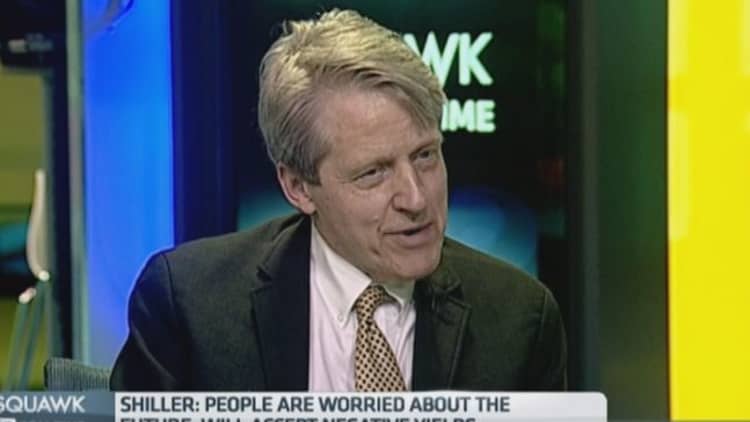People who work in technology could become as hated as bankers, a top U.K. lawmaker has warned, as employees in the sector get richer and asset prices rise.
Nat Wei, a member of Britain's second chamber, the House of Lords, described a situation in which people feel excluded from the technology boom amid an appreciation in asset prices, such as real estate.
He dubbed it "tech-lash," and claimed that the technology industry's success in many pockets of the world, such as San Francisco, had left whole communities behind.
"Certain people will find they are excluded from the tech boom and the tech industry, and are not able to access the asset appreciation. Instead they feel a sense of resentment," Wei said during a speech at London Technology Week on Wednesday.
"At some point that will turn, and maybe those of us who work in the tech industry will be just as embarrassed as bankers and treated as badly, sadly, as some bankers are."
Fear of 'getting beaten up'
Wei said that during a visit to San Francisco's Bay Area last year, he met Google employees that refused to say they worked for the tech giant because there was a "risk they will get beaten up."
Pointing to riots in Hong Kong and London in the past few years, Wei claimed that "something minor" had the potential to trigger civil unrest as more people found it hard to access jobs such as coding.

Underlying the resentment, according to Wei, is the fear of robots taking over jobs -- particular manual labor tasks. In the U.K., 35 percent of jobs could be replaced by automation in the next 20 years, a Deloitte study showed. That figure rises to 47 percent in the U.S., according to researchers at Oxford University.
Nobel Prize-winning economist Robert Shiller told CNBC in a recent interview that there was an "increasing fear of technology," and other high-profile technologists, such as Tesla boss Elon Musk and Microsoft co-founder Bill Gates, have expressed concern over the future roles of robots and artificial intelligence (AI).
'Hope'
But Wei, who is the youngest member of the House of Lord, said "there is hope" and a "transition plan" needed to be put in place for jobs that could be under threat. Employees could, for example, be offered shares in companies.
"It's ownership of something – a company, a house, something scarce – that robots, big data, AI can't do. That allows you to get wealth," Wei said.
The automation of jobs could actually create more jobs too, Wei argued.
Robots could take over waiting jobs in a restaurants, for example, but people will be needed to maintain the machines. Plus, people who have been displaced could retrain and return to work in more advanced roles.
Indeed, the automation of roles will make society richer as people take up more advanced employment, Wei claimed.
"We'll all be richer when more people are doing jobs they're interested in, which match their skill levels. This means there is more surplus (of profit) in companies, which means it will feed through into higher wages or investment and then you get the virtuous cycle. Right now that isn't happening," he added.





